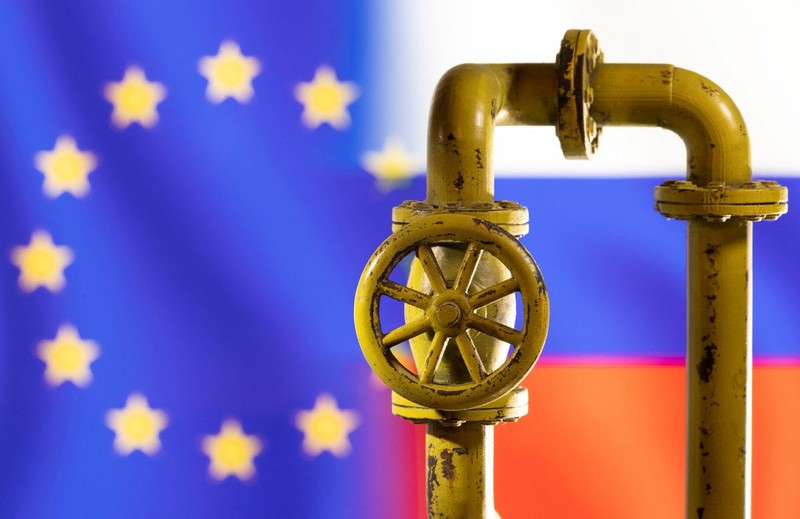Energy has become the EU’s “most difficult problem” throughout 2022. A few months after the outbreak of the Russia-Ukraine conflict, Europe once announced that it had completely replaced gas supplies from Moscow with other sources, but experts say that Europe will still face huge challenges in the long run. However, the pressure from the lack of energy supply from Russia has pushed the EU to diversify supply sources and accelerate the green transition in the energy industry.
To replace Russian gas imported through pipelines, Europe has increased imports of liquefied petroleum gas (LNG) from other partners, especially the US. The total EU gas imports from Russia, including LNG, fell by 39 billion cubic meters from January to August 2022, the European Commission (EC) said. During the same period, LNG supplies from the US soared by nearly 80%. In addition, EU countries are also constantly striving for energy self-reliance through renewable energy projects and perfecting the mechanism for developing green energy sources.
At the recent World Economic Forum (WEF) in Davos (Switzerland), EC President Ursula von der Leyen said that the EU will introduce new clean energy subsidies to compete with the US and China. According to the EC President, the European Green Deal Industry Plan is designed to turn Europe into a clean technology hub and achieve net zero emissions by 2050.
In addition, Leyen said that the EU will temporarily adjust its subsidy rules to speed up and simplify the licensing of clean energy production. The EU is also developing a new Industrial Emissions Directive, to focus investments on projects regarding the entire supply chain, such as simplification and fast-track licensing for new clean technology production sites.
Along with the development of renewable energy, analysts predict that some EU countries will return to promoting nuclear energy to offset energy supplies after “boycotting” Russian gas. Les Echos daily newspaper said that the conflict in Ukraine is making nuclear energy a topic of interest.
The newspaper quoted French Minister for the Economy and Finance Bruno Le Maire, as saying at the nuclear power restart ceremony in Normandy, that all major industrial countries in Europe, including nations, made another choice, “sooner or later will return to nuclear power”.
In addition to diversifying supply, the EU is also trying to come up with options for regulating the energy market. The European press reports that the EU is preparing proposals to adjust the market, in an attempt to reduce the impact of fossil fuel price fluctuations on the electricity bills of consumers in the bloc.
In a public consultation conducted on January 23, the EC presented several options to adjust the electricity-selling method of power plants, as part of a market reform plan that the EC will propose in March. In addition, the EC calls for more public contractors to participate in renewable energy projects.
With the above-mentioned efforts, the EU has gradually escaped from its dependence on Russian energy by 2023 and the EU’s energy self-reliance is forecast to be consolidated in the coming years. Speaking to the TASS news agency, Josep Borrell emphasised that: “We have, in a few months, abolished the energy dependence on Russia that we had built up for years. We have been through an extraordinarily tense phase of rising prices, but they are back at pre-war values.”
The above fact is something that the EU, Russia and the international community could not have foreseen when the Ukraine war broke out in early 2022. Once the EU countries can say no to Russian gas, Moscow is losing an important strategic card in the negotiations with the West, on the Ukraine issue and the regional geopolitical “chessboard” and will certainly see major changes in 2023.
















